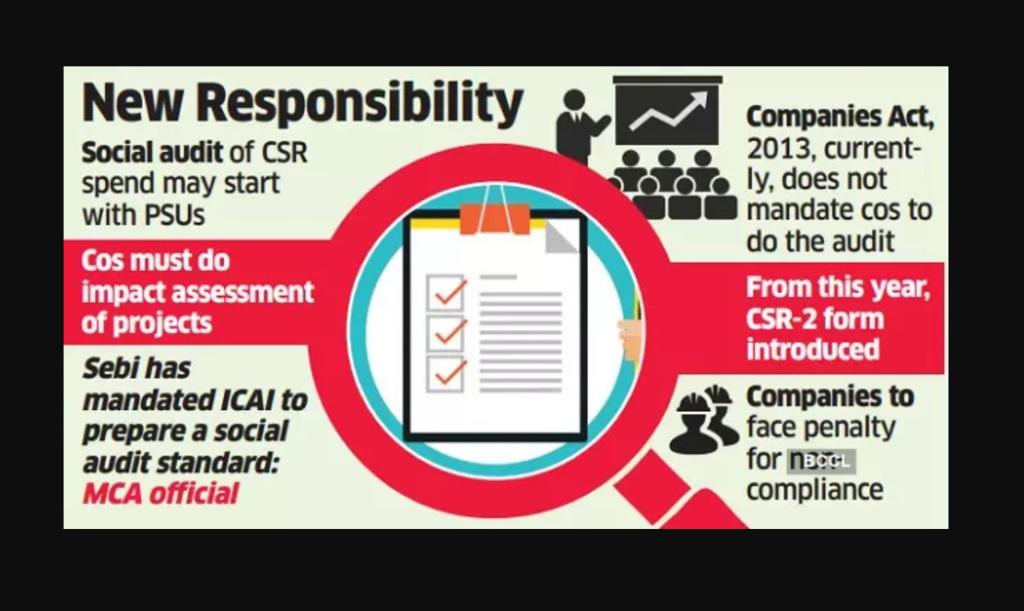Synopsis
Officials in the Ministry of Corporate Affairs (MCA) said the social audit will begin with public sector undertakings (PSUs) and then extended to all the corporate entities. One of the officials said markets regulator Securities and Exchange Board of India (Sebi) has already mandated Institute of Chartered Accountants of India (ICAI) to work on preparing a social audit standard.
The government plans to make it mandatory for companies to conduct social auditing of their corporate social responsibility (CSR) spending as part of an initiative to further tighten the CSR norms in the country.
Officials in the Ministry of Corporate Affairs (MCA) said the social audit will begin with public sector undertakings (PSUs) and then extended to all the corporate entities.
One of the officials said markets regulator Securities and Exchange Board of India (Sebi) has already mandated Institute of Chartered Accountants of India (ICAI) to work on preparing a social audit standard.
While this will be used mainly for NGOs and not-for profit organisations, this could also be used for the broader impact assessment under CSR spending as well.
“Once the social auditing framework is ready, we will start it with PSUs,” the official added.
The Companies Act, 2013, currently, does not mandate companies to conduct any social audit of their CSR activities.
From this year, with the introduction of CSR-2 form, corporates must file a report on CSR to the registrar with detailed information on the projects where they are spending. “The new form CSR-2 will include a list of projects and the information like where they are doing it, what kind of money is being spent,” a senior official said.
With the introduction of social auditing and impact assessment, the entire disclosure mechanism will be more transparent, the official told ET.
Earlier, in January 2021, MCA had made many changes to rules to make companies more accountable for CSR spending and introduced a provision for monetary penalty. In case a company defaults on CSR, penalty can start from ₹2 lakh and go up to ₹1 crore.
In case a company spends more than the mandatory 2% of its average net profit for the past three years on CSR, it can adjust it against future spending obligations.
Some companies have complained about the increasing compliance burden, but experts said social audit will make the CSR spending process more transparent.
“This, along with the various amendments in the sphere of CSR, have shifted CSR in India from a comply or explain approach towards a comply and disclose approach,” said Nemish Kapadia, partner, assurance, at audit and tax practice Sudit K Parekh & Co LLP.
The new CSR norms mandates companies to give information on CSR committees formed by businesses, its members, and details of welfare projects undertaken. Also, if there is any amount that remains unspent, it needs to be transferred to designated accounts.
“The compliance primarily encompasses aggregation of all reportable CSR information which broadly covers criteria of CSR applicability, amount of spend required, amount spent and unspent, amount of set off, if any, avenues of CSR spend spending, details of capital assets acquired or created, and reasons for failure to spend, among others,” Kapadia said.
Recently, a parliamentary standing committee on finance headed by former MoS Jayant Sinha expressed concerns about the monitoring mechanism of CSR spend. “Information regarding CSR spending by companies are insufficient and difficult for a layperson to access,” the panel had said in its report.
Article Credits: The Economic Times


Pingback: Sitharaman urges CAs to adopt carbon, CSR, ESG practices - SLSV - A global media & CSR consultancy network